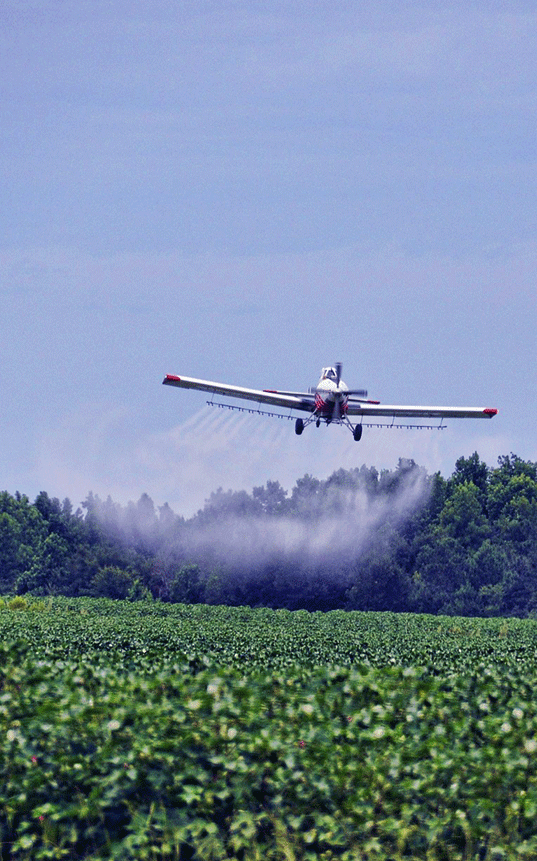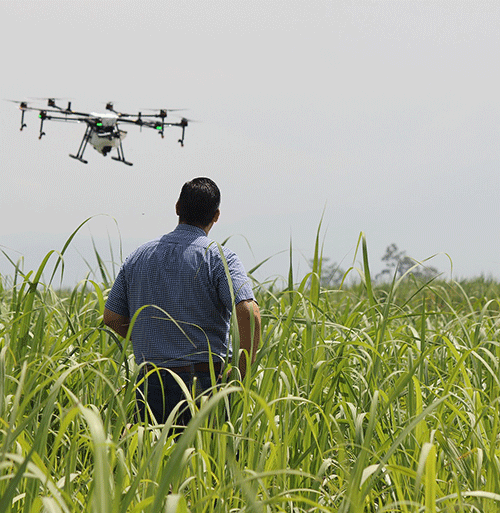Within our primary industries, sustainable agriculture presents a tremendous opportunity for innovation. As providers of product development, chemical analysis and formulation services, we are looking forward to assist our clients to turn these ideas into realities.
Our farmers, supported by manufacturers, researchers, industry groups and other stakeholders, are developing innovative ways to combat global food waste. This enthusiasm for change and innovation in the agricultural sector presents opportunities for product and methodology enhancements as we continue to support our clients with turnkey solutions in formulation and production services.
According to the Food and Agricultural Organization of the United Nations, one third of all global food produced or packaged for human consumption, is either lost or wasted. This is the equivalent of approximately 1.3 billion tonnes with fruit and vegetables having the highest wastage rates. By 2050, the world’s population is expected to grow to 10 billion people, which may intensify demand for food between 59% - 98%. Consequently, less food waste, more efficient land use and better water resource management may positively impact climate change and ultimately, our livelihoods.

Boosting Change and Innovation in the Agricultural Sector
Manufacturing is a key driver of economic development. In July 2019, the New Zealand Government announced its focus to boost innovative industries including agricultural technology (agritech), food and beverage, and forestry and wood processing. Environment Minister, David Parker said, “The agritech sector has been chosen as a key focus because it brings together two of New Zealand’s key competitive advantages – our expertise in agriculture and horticulture with our well-educated workforce.”
Considering that our agricultural sector is recognised as global leader of practices relating to livestock and pasture productivity, dairy and horticulture, this additional funding will enable more investment and opportunity for our LABTEC clients to research and identify new scientific breakthroughs in formulation and product development, which can in turn, modernise and achieve greater and more diverse outcomes in agriculture and farming.

A Snapshot: Agricultural Chemicals
Weed competition can cause significant yield losses in crops. With the industrialisation of agriculture, pesticides and herbicides have become an important management tool for the control of weeds in crops. Over time, manufacturers have progressed in the development and design of new molecules with a reasonable expectation that they will have the desired effect of destroying or inhibiting the growth of unwanted vegetation - weeds. Here, researchers can for instance, target a specific enzyme system that is known to be affected by one or more functional groups.
However, the evolution of herbicide resistance in weeds presents researchers and manufactures with the requirement for innovation. The International Survey of Herbicide-Resistant Weeds, who monitors the evolution of herbicide-resistant weeds throughout the world, currently reports 502 unique cases of herbicide resistant weeds globally. Furthermore, understanding herbicides is a process of continuous learning because while some herbicides are known to have more than one site of action, the exact molecular sites of action of many herbicides remain unknown. For example, the mechanism of action of the phenoxy herbicides is still unknown, even after more than 60 years of being commercially available for use. Nonetheless, discoveries of new herbicides have a stronger scientific base today than in the past, and our understanding is likely to continue to develop with continued scientific research.
Manufactures engaged in discovery, research and development, must also survey customer needs. While new product development is based on business principles, customer needs drive commercial success. With a growing trend towards alternative farming practices or agricultural sustainability, researchers are looking at creating novel products, services and value chain solutions for not just the agriculture and horticulture industries, but across our other primary sectors. But will this trend support policies and practices necessary to feed the global population and sustain our environment?

Technology and Product Development - The Sky's No Longer the Limit!
With an increasing need to comply with regulatory requirements and rising interest from producers and consumers for the sustainability of our environment, there is demand for precision agriculture technology and bio-based products. There is demand for innovative technology for improved adaptation and adoption of precision tools, methodologies and practices in agricultural operations. Technologies including machine learning, robotics, and drones are envisioned to help our farmers predict pest resurgence, test soil samples, improve efficiencies in livestock management, as well as optimise the use of pesticides, herbicides, fertilisers, animal feed and veterinary medication.
The integration of technology and farming practices through agritech should not be underestimated for the potential benefits it presents to the agricultural sector and manufactures to move beyond volume and add value to crop output. New technologies in processing, product development and manufacturing are also enabling a broader range of novel product concepts, beyond raw or simple goods, to be manufactured in New Zealand. These market dynamics, furthermore present opportunities for cross pollination - agricultural and veterinary (AgVet) manufacturers can add value to our traditional products, or develop new agricultural chemicals, veterinary medicines, domestic cleaning products as well as other innovative industrial products that reflect these changed market conditions.
Our Approach
Successful product development requires understanding the various complexities and sub-layers affecting the industry. To manage this, our team at LABTEC takes a holistic and concurrent approach from the first engagement to the delivery of turnkey solutions for our clients. Our approach considers the unique circumstances and needs of our clients to provide laboratory services in the areas of product development, formulation, chemical analysis, patent specifications, stability testing, manufacturing process, troubleshooting and ongoing support.
Whether you are looking for full-scale services or you need to meet a specific milestone, contact our expert LABTEC team today to find out how our services can assist you with your project.
Further Reading
https://www.nzherald.co.nz/business/news/article.cfm?c_id=3&objectid=12091277
https://www.mbie.govt.nz/assets/f0f81b6194/new-zealand-manufacturing-sector-report-2018.pdf